

May 2025
Volume 5, Issue 5
The Farmer's Wheat

There was a farmer who grew excellent quality wheat, and every season he won the award for the best grown in his county.
One year a reporter from the local newspaper interviewed the farmer and learned that each Spring the man shared his seed with his neighbors
so that they too could plant it in their fields...
“How can you afford to share your best wheat seed with your neighbors
when they are entering their crops in the competition with yours?" the
reporter asked....
“Why that's very simple,” the farmer explained...
"The wind picks up pollen from the developing wheat and carries it from field to field.
If my neighbors grow inferior wheat, cross-pollination will steadily degrade the quality of all the wheat, including mine.
If I am to grow good wheat, I must help my neighbors grow good wheat"...
As the reporter thought on this idea for a while, he begin to realize how the farmer's explanation could also apply to peoples' lives, and in the most fundamental way... Those who want to live meaningfully and well must help enrich the lives of others, for the value of a life is measured by the lives it touches.
And those who choose to be happy must help others find happiness, for the welfare of each is bound up with the welfare of all...
These stories have been chosen to encourage and inspire.
They may be personal experiences from the editor and her family or they may be from other sources. I hope you will be blessed.
May you enjoy your journey as you browse through these pages each month.
You may want to say a prayer for those you love and those you want to share inspirational thoughts with.
Daily I hope you will look around you to see how God blesses you through His Providence and abundance.
His works are marvelous! His wonders He performs!


The Old Mule and the Well
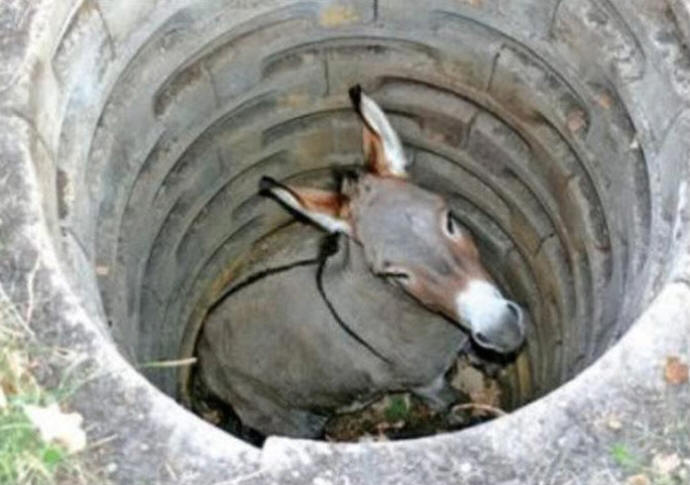
The parable is told of a farmer who owned an old mule. The mule fell into the farmer's well. The farmer heard the mule 'braying'
- or - whatever mules do when they fall into wells.
After carefully assessing the situation, the farmer sympathized with the mule, but decided that neither the mule nor the well was worth the trouble of saving.
Instead, he called his neighbors together and told them what had happened.
He then enlisted them to help haul dirt to bury the old mule in the well and put him out of his misery.
Initially, the old mule was hysterical! But, as the farmer and his neighbors continued shoveling and the dirt hit his back, a thought struck him.
It suddenly dawned on him that every time a shovel load of dirt landed on his back he should shake it off and step up. And, this he did, blow after blow.
"Shake it off and step up...shake it off and step up...shake it off and step up!" he repeated to encourage himself.
No matter how painful the blows, or distressing the situation seemed, the old mule fought "panic" and just kept right on shaking it off and stepping up!
It wasn't long before the old mule, battered and exhausted, stepped triumphantly over the wall of that well!
What seemed like
it would bury him, actually blessed him because of the manner in which he
handled his adversity.
~Author Unknown
Dirt.
It's hard to go through life without getting it thrown on us or at us.
And yet, when it comes flying in our direction, like the mule, we have a
choice to make.
We can choose to allow the hurts, the insults, the setbacks, and pits of this life to swallow us alive, or we can use these hardships,
challenges, blessings in disguise to be the very stepping stool we need to lift us up out of our situation.
God always has a purpose. God always has a plan. Sometimes, the plan is simply this: Shake it off, and step up!
Heavenly Father, We stumble and fall. We let the hard times in life get the best of us. We allow others to throw "guilt" on us,
and often, we throw it on ourselves.
We listen to the lies of the accuser, Satan, (Rev 12:10) and lie down under the weight of our failure. We feel like giving up, throwing in the towel, calling it quits.
Help us to remember, You are here. You have a plan. You can take our failures, our trials and our setbacks and use them to lift us up to a new life in You.
Through Your redemptive love, our struggles become a way for us to share You with others, helping to lift them out of the pits of life, too.
With You, Father God, our mess becomes our message. Our test becomes our testimony. Help us to not ever give up, but to "throw off everything that hinders
and the sin that so easily entangles. And let us run with perseverance the race marked out for us, fixing our eyes on Jesus, the pioneer and perfecter of our faith.".
~ (Hebrews 12:1-3)
|
The Cab Ride "Just a minute," answered a frail, elderly voice.
I could hear something being dragged across the floor. After a long pause, the door opened. A small woman in her 90's stood before me.
She was wearing a print dress and a pillbox hat with a veil pinned on it, like somebody out of a 1940's movie. By her side was a small nylon suitcase.
The apartment looked as if no one had lived in it for years. All the furniture was covered with sheets. There were no clocks on the walls, no knickknacks or utensils on the counters. In the corner was a cardboard box filled with photos and glassware..
"Would you carry my bag out to the car?" she said. I took the suitcase to the cab, then returned to assist the woman. She took my arm and we walked slowly toward the curb.
She kept thanking me for my kindness. "It's nothing," I told her. "I just try to treat my passengers the way I would want my mother to be treated." "Oh, you're such a good boy," she said.
When we got into the cab, she gave me an address and then asked, "Could you drive through downtown?" "It's not the shortest way," I answered quickly. "Oh, I don't mind," she said. "I'm in no hurry. I'm on my way to a hospice."
I looked in the rear-view mirror. Her eyes were glistening. "I don't have any family left," she continued in a soft voice. "The doctor says I don't have very long."
I quietly reached over and shut off the meter. "What route would you like me to take?" I asked.
For the next two hours, we drove through the city. She showed me the building where she had once worked as an elevator operator.
We drove through the neighborhood where she and her husband had lived when they were newlyweds. She had me pull up in front of a furniture warehouse that had once been a ballroom where she had gone dancing as a girl. Sometimes she'd ask me to slow in front of a particular building or corner and would sit staring into the darkness, saying nothing.
As the first hint of sun was creasing the horizon, she suddenly said, "I'm tired. Let's go now."
We drove in silence to the address she had given me. It was a low building, like a small convalescent home, with a driveway that passed under a portico. Two orderlies came out to the cab as soon as we pulled up.
They were solicitous and intent, watching her every move.
I opened the trunk and took the small suitcase to the door. The woman was already seated in a wheelchair. "How much do I owe you?" she asked, reaching into her purse. "Nothing," I said. "You have to make a living," she answered. "There are other passengers," I responded.
Almost without thinking, I bent and gave her a hug. She held onto me tightly. "You gave an old woman a little moment of joy," she said. "Thank you." I squeezed her hand, and then walked into the dim morning light. Behind me, a door shut. It was the sound of the closing of a life...
I didn't pick up any more passengers that shift. I drove aimlessly lost in thought. For the rest of that day, I could hardly talk. What if that woman had gotten an angry driver,
or one who was impatient to end his shift?
On a quick review, I don't think that I have done anything more important in my life. We're conditioned to think that our lives revolve around great moments. But great moments often catch us unaware ~ beautifully wrapped in what others may consider a small one.
... BUT - THEY WILL ALWAYS REMEMBER HOW YOU MADE THEM FEEL. Thank you, my friend... Life may not be the party we hoped for, but while we are here we might as well dance.
|
Open the door and WALK OUT!
An inspiring story, written by Jean Bell Mosley
An older sister's calm words, spoken at a crucial moment were worth remembering for a lifetime.
"Lillian was the calm, sensible, soothing sister standing there, in age a year or two ahead of Lou and me. She was a source of strength and information, a bulwark of defense against boo-boogles that lived in the attic at night, a calming influence for the whole family whenever disaster descended. The fever of fear never transcended normalcy when Lillian was around.
"We'll put this out with water," she said, practically, when shelf papers in the pantry caught fire. "Now the cows have to be driven from the alfalfa," she told Lou and me when we three were left alone for an afternoon and the cows, upon whom the family's economy depended, broke through. "Bring the hoe," she would say quietly when a snake was discovered in the garden.
It was natural that out of all these coolheaded sayings, each member of the family would come to adopt a particular one that seemed to stand him in good stead through all the following vicissitudes of life, although it might be utterly meaningless to someone else.
The one that is mine, "Open the door and walk out," was first uttered by Lillian upon a frightening occasion. We lived in the hill country where quick, sudden rains resulted in quick, sudden and deadly floods. The peaceful, old, otherwise lazy-flowing Saint Francis River could become a raging menace in twenty minutes.
Lillian and I had gone to the distant town for the weekly supply of groceries. Leaving on a calm, blue-skied summer morning, Lillian expertly guided the old car across the ford, such feat being unamazing for the natives, for we knew to the half-inch where lay the big boulders, where yawned the deep holes and where spread the quicksand.
During our sojourn to town, up boiled the sudden cloudburst out of the southwest, spilling small seas of water on the slopes of Stono, Brown, Simms, and Buford Mountains. In no time at all the peaceful, meandering river began to change complexion and temper. We knew what was likely to happen and hurried homeward with our groceries. Approaching the ford we were dismayed that we had not driven a little faster. Still, it did seem that it would be safe to cross. If we dallied even a moment longer we would have to turn back for higher ground and be marooned at least overnight.
Lillian drove into the stream, carefully following the hidden trail. Water seeped under the doors. Water was on the floor. Water drowned the engine!
Something cold and tight grabbed at the back of my neck, fixed my eyes and paralyzed my legs. Self-possession flowed away as swiftly as the flood waters moved and in came all the enemies of my imagination. I knew panic and fear. To have abandoned the car and the precious groceries would not have entered my youthful mind.
"Now the thing to do," I heard Lillian saying from somewhere far away, "is to open the door and walk out of here." When she saw I made o move, she added, "Now!"
It was said in the same tone as she would have said, "sweep the kitchen," or "Hang out the clothes."
When I saw her demonstrate her order, I did like-wise. The water was so deep and swift by this time, we struggled to maintain footholds. By the time we had reached the home shore, it was over the seats of the car and moments later only the top was visible.
We heard family coming, Mom, Dad, and Lou running well ahead, Grandma and Grandpa straggling out behind but hurrying. They knew what might have happened.
Looking up at Mom's white face, I spread my palms and shrugged, saying, "We just opened the door and walked out," giggling with the utter simplicity of it.
"One seldom sails through life without at some time getting cornered or trapped in a situation not altogether unlike that of being caught midstream in a rapidly rising river. Even an ordinary day can turn into a formidable thing. Petty irritations keep sliding down mountains and gathering into the stream of the unconscious. Something grabs at the throat, tenses muscles, until at last one feels in danger of being swept away by an irresistible force. Then is when I remember those words, "Open the door and walk out." And that is what I do. Sometimes very literally, going out to stroll through the garden or along some quiet stream bank. Sometimes speaking a quiet "No" or "I don't wish to do this" is tantamount to opening the door and walking out."
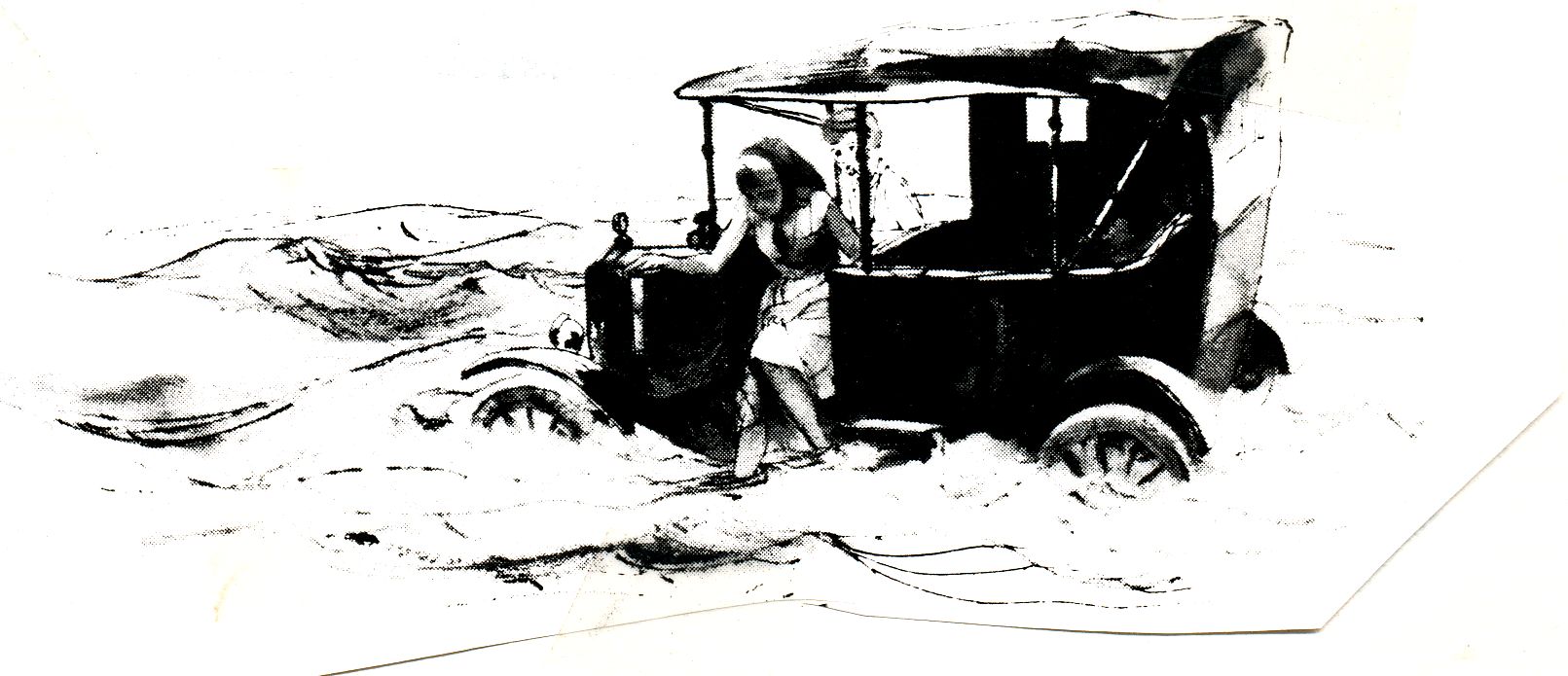
THE ROSE
~Anon~
The first day of school our professor introduced himself and challenged us
to get to know someone we didn't already know. I stood up to look
around when a gentle hand touched my shoulder.
I turned around to find a wrinkled, little old lady beaming up at me with a
smile that lit up her entire being.
She said, 'Hi handsome.. My name is Rose. I'm eighty-seven years old. Can I
give you a hug?'
I laughed and enthusiastically responded, 'Of course you may!' and she gave
me a giant squeeze..
'Why are you in college at such a young, innocent age?' I asked.
She jokingly replied, 'I'm here to meet a rich husband, get married, and
have a couple of kids...'
'No seriously,' I asked. I was curious what may have motivated her to be
taking on this challenge at her age.
'I always dreamed of having a college education and now I'm getting one!'
she told me.
After class we walked to the student union building and shared a chocolate
milkshake..
We became instant friends. Every day for the next three months we would
leave class together and talk nonstop. I was always mesmerized listening
to this 'time machine' as she shared her wisdom and experience with me..
Over the course of the year, Rose became a campus icon and she easily made
friends wherever she went. She loved to dress up and she reveled in the
attention bestowed upon her from the other students. She was living it up.
At the end of the semester we invited Rose to speak at our football banquet.
I'll never forget what she taught us. She was introduced and
stepped up to the podium. As she began to deliver her prepared speech, she
dropped her three by five cards on the floor.
Frustrated and a little embarrassed she leaned into the microphone and
simply said, 'I'm sorry I'm so jittery... I gave up beer for Lent and
this whiskey is killing me! I'll never get my speech back in order so let me
just tell you what I know.'
As we laughed she cleared her throat and began, 'We do not stop playing
because we are old; we grow old because we stop playing.
There are only four secrets to staying young, being happy, and achieving
success. You have to laugh and find humor every day. You've got to have a
dream. When you lose your dreams, you die.
We have so many people walking around who are dead and don't even know it!
There is a huge difference between growing older and growing up.
If you are nineteen years old and lie in bed for one full year and don't do
one productive thing, you will turn twenty years old. If I am
eighty-seven years old and stay in bed for a year and never do anything I
will turn eighty-eight.
Anybody can grow older.. That doesn't take any talent or ability. The idea
is to grow up by always finding opportunity in change. Have no
regrets.
The elderly usually don't have regrets for what we did, but rather for
things we did not do. The only people who fear death are those with
regrets.'
She concluded her speech by courageously singing 'The Rose.'
She challenged each of us to study the lyrics and live them out in our daily
lives. At the year's end Rose finished the college degree she had
begun all those years ago.
One week after graduation Rose died peacefully in her sleep.
Over two thousand college students attended her funeral in tribute to the
wonderful woman who taught by example that it's never too late to be all
you can possibly be.
REMEMBER, GROWING OLDER IS MANDATORY. GROWING UP IS OPTIONAL. We make a
Living by what we get, We make a Life by what we give..
God promises a safe landing, not a calm passage. If God brings you to it, He
will bring you through it.
'Good friends are like stars..........You don't always see them, but you
know they are always there.'

![]()
![]()
![]()
![]()
![]()
![]()
![]()
![]()
![]()
The Promise
~ adapted from the story, "Are You Going to Help Me - written by Mark V. Hansen
The story is told of a father who kept his word to his son following a devastating earthquake that took place in a far country in the 1900's when thousands of people were killed.
A lone father said to his wife after the initial shock of the earthquake was over, "I must go and find my boy.
I promised him that no matter what, I would always be there for him.
Earlier that day the father and son had walked hand and hand to the school where the boy attended. Leaving him there at the school after they had said their goodbye's, the father had walked back home again. Later that day, there was a sudden, massive earthquake. Now the father, in a state of frenzy and shock, felt he must return to the school to try to find his boy. When he arrived at the scene, he found only heaps of rubble where the school once stood.
Tracing his steps back to the spot where he had last said goodbye to this son, he begin digging.
Many people came by and watched him dig, many tried to discourage him, telling him it was hopeless as they tried to get him to stop digging. He would only pause long enough to ask them if they were going to help him. But they would only turn and walk away, showing no interest in helping in what they felt was a hopeless situation. "All the children are dead," they would say! "There is no use! You are wasting your time."
But this father did not give up. Encouraged by his promise to his boy, that he would always be there for him, he kept on digging, asking those who were trying to discourage him, if they were willing to help him dig. No one wanted to help. Mother's and Father's everywhere were sighing and crying and calling out the names of their children, but to no avail. Many of them gave up and left, feeling hopeless. But this father kept on digging in the rubble, moving large pieces of stone and timber, searching and listening for any sounds that would be an indication that his boy was still alive.
He dug in the rubble for hours. He dug for eight hours, then twelve hours, then twenty-four hours, and then thirty-eight hours. At last, after thirty-eight hard and wearisome hours of digging, he pulled back a boulder and and was ecstatic at hearing his son's voice. He called out his name, and waited. Then he heard his boy call back to him, "Dad? It's me, Dad! I'm alive, and I have these other kids with me. There are 14 of them. I told them that they did not need to worry, because I knew you would would come and rescue me, and then they would be saved too. I told them that you had promised me,
"No matter what, I'll always be there for you." And you did it, Dad. You are here for me.
The boy told his dad that when the building collapsed, it made a wedge, like a triangle, and it had made a place of safety for them.
Then the father, so relieved to hear his son, called out to him again and said, "Come on out son," but the boy replied,
"No, Dad!" Let the other kids go out first, because I know you'll get me! No matter what, I know you'll be there for me!"
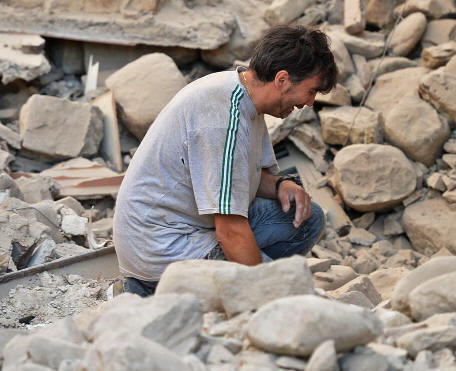
A Father's Word is like Gold to his children.
It means he can be depended upon, No matter what!
His word represents a Gibraltar of strength upon which to build a life.
![]()
Miracle Fuel
~ Shared from Amazing Facts Daily Devotionals - 11-28-18
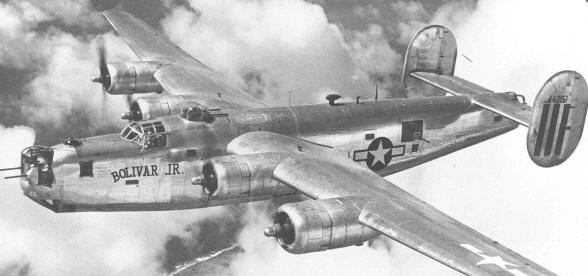
During World War II an American bomber ran out of gas over the Pacific and was forced to land on a Japanese-held island.
Without fuel to get away, the crew knew they would be soon captured and resigned themselves to this looming fate. But the bomber was also carrying a chaplain.
A firm believer, he refused to give up hope and prayed to God for deliverance. Though the crew respected his faith, they did not share his optimism.
But the next day they changed their minds. Early that morning, just before
dawn, one of the crew was awakened suddenly with a strong feeling that he
should go down and walk on the beach. There he found, bobbing on the
incoming waves, a huge drum of aviation gasoline.
With a shout, the astonished airman awakened
the rest of the amazed crew, who rushed down to the water, pulled the big
drum ashore, and transferred the miraculous gift of gas to the stranded
plane. Soon they were safely off the island, airborne to their
not-too-distant base.
Later, the facts concerning the miraculous gasoline came to light. The drum
had been part of a cargo of fuel that had been jettisoned from its barge
following a Japanese attack. All the other drums had been lost, but this one
had managed to float nearly 1,000 miles past 25 other islands to finally
wash up at the very feet of the men who desperately needed that gasoline to
save their lives.
God delights in miraculous rescues! He rescued the disciples from sinking in
a storm on the Sea of Galilee by walking on water.
He rescued Jonah from drowning by allowing a whale to swallow him. He rescued Daniel from a den of hungry lions by sending an angel to shut the lions’ mouths.
And he rescued Joseph from a lifetime of imprisonment by sending a pagan king a dream.
Are you in a difficult situation? Paul counseled, “Be anxious for nothing, but in everything by prayer and supplication, with thanksgiving,
let your requests be made known to God; and the peace of God, which surpasses all understanding, will guard your hearts and minds through Christ Jesus”
(Philippians 4:6, 7). Perhaps God has a miraculous rescue planned for you!
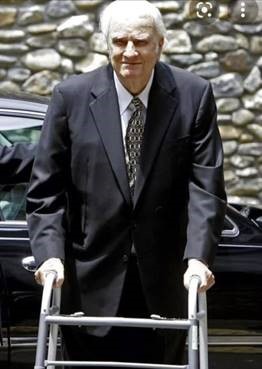 I
Not Only Know Who I Am, I Also Know Where I Am Going
I
Not Only Know Who I Am, I Also Know Where I Am Going
When Billy Graham was 92 years-old, he was struggling with Parkinson's disease. In January, a month before his 93rd birthday, leaders in Charlotte, North Carolina, invited their favorite son, Billy Graham to a luncheon in his honor.
Billy initially hesitated to accept the invitation because of his struggles with Parkinson's disease. But the Charlotte leaders said, 'We don't expect a major address. Just come and let us honor you.' So he agreed.
After wonderful things were said about him, Dr. Graham stepped to the podium, looked at the crowd, and said: "I'm reminded today of Albert Einstein, the great physicist who this month has been honored by Time magazine as the Man of the Century. Einstein was once traveling from Princeton on a train, when the conductor came down the aisle, punching the tickets of every passenger. When he came to Einstein, Einstein reached in his vest pocket. He couldn't find his ticket, so he reached in his trouser pockets. It wasn't there. He looked in his briefcase but couldn't find it. Then he looked in the seat beside him. He still couldn't find it.
"The conductor said, “Dr. Einstein, I know who you are. We all know who you are. I'm sure you bought a ticket. Don't worry about it.” Einstein nodded appreciatively. The conductor continued down the aisle punching tickets. As he was ready to move to the next car, he turned around and saw the great physicist down on his hands and knees looking under his seat for his ticket.
"The conductor rushed back and said, 'Dr. Einstein, Dr. Einstein, don't worry, I know who you are; no problem. You don't need a ticket. I'm sure you bought one. 'Einstein looked at him and said, “Young man, I too, know who I am. What I don't know is where I'm going."
Having said that Billy Graham continued, "See the suit I'm wearing? It's a brand new suit. My children, and my grandchildren are telling me I've gotten a little slovenly in my old age. I used to be a bit more fastidious. So I went out and bought a new suit for this luncheon and one more occasion. You know what that occasion is? This is the suit in which I'll be buried. But when you hear I'm dead, I don't want you to immediately remember the suit I'm wearing. I want you to remember this: "I not only know who I am. I also know where I'm going."
May your troubles be less, your blessings more, and may nothing but happiness, come through your door. "Life without God is like an unsharpened pencil - it has no point."
May each of us have lived our lives so that when our ticket is punched we don't have to worry about where we are going.
~Story by Susan Walsh

The Value of Life
A little boy went to his old grandpa and asked, "What's the value of life?"
The grandpa gave him one stone and said, "Find out the value of this stone, but don't sell it."
The boy took the stone to an Orange Seller and asked him what its cost would be.
The Orange Seller saw the shiny stone and said, "You can take 12 oranges and give me the stone."
The boy apologized and said that the grandpa has asked him not to sell it.
He went ahead and found a vegetable seller.
"What could be the value of this stone?" he asked the vegetable seller.
The seller saw the shiny stone and said, "Take one sack of potatoes and give me the stone."
The boy again apologized and said he can't sell it.
Further ahead, he went into a jewelry shop and asked the value of the stone.
The jeweler saw the stone under a lens and said, "I'll give you 1 million for this stone."
When the boy shook his head, the jeweler said, "Alright, alright, take 2 24karat gold necklaces, but give me the stone."
The boy explained that he can't sell the stone.
Further ahead, the boy saw a precious stone's shop and asked the seller the value of this stone.
When the precious stone's seller saw the big ruby, he lay down a red cloth and put the ruby on it.
Then he walked in circles around the ruby and bent down and touched his head in front of the ruby. "From where did you bring this priceless ruby from?" he asked.
"Even if I sell the whole world, and my life, I won't be able to purchase this priceless stone."
Stunned and confused, the boy returned to the grandpa and told him what had happened.
"Now tell me what is the value of life, grandpa?"
Grandpa said,
"The answers you got from the Orange Seller, the Vegetable Seller, the Jeweler & the Precious Stone's Seller explain the value of our life...
You may be a precious stone, even priceless, but people will value you based on their financial status, their level of information, their belief in you, their motive behind entertaining you, their ambition, and their risk taking ability.
But don't fear, you will surely find someone who will discern your true value."
Respect yourself.
Believe in yourself.
Stay focus.
Don't sell yourself cheap.
You are Unique.
No one can replace you!
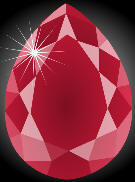
![]()
The Bridge
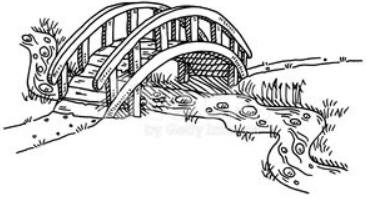
Once upon a time two brothers who lived on adjoining farms fell into conflict. It was the first serious rift in 40 years of farming side by side, sharing machinery, and trading labor and goods as needed without hitch. It began with a small misunderstanding, it grew into a major difference, and finally it exploded into an exchange of bitter words followed by weeks of silence.
One morning there was a knock on John’s door. He opened it to find a man with a carpenter’s toolbox. “I’m looking for a few days work,” he said. “Perhaps you would have a few small jobs here and there. Could I help you?”
“Yes,” said the older brother. “I do have a job for you. Look across the creek at that farm. That’s my neighbor. In fact, it’s my younger brother. Last week there was a meadow between us. He took his bulldozer to the river levee and now there is a creek between us.
“Well, he may have done this to spite me, but I’ll do him one better. See that pile of lumber curing by the barn? I want you to build me a fence―an 8-foot fence―so I won’t need to see his place anymore. Cool him down, anyhow.”
The carpenter said, “I think I understand the situation. Show me the nails and the post-hole digger and I’ll be able to do a job that pleases you.”
The older brother had to go to town for supplies, so he helped the carpenter get the materials ready and then he was off for the day. The carpenter worked hard all that day measuring, sawing, nailing.
About sunset when the farmer returned, the carpenter had just finished his job. The farmer’s eyes opened wide, and his jaw dropped. The carpenter had not built a fence, he had built a bridge―a bridge stretching from one side of the creek to the other! A fine piece of work, handrails and all―and the neighbor, the farmer’s younger brother, was coming across, his hand outstretched.
“You are quite a fellow to build this bridge after all I’ve said and done.”
The two brothers met in the middle, taking each other’s hand. They turned to see the carpenter hoist his toolbox on his shoulder.
“No, wait! Stay a few days, I’ve a lot of other projects for you,” said the older brother.
“I’d love to stay on,” the carpenter said, “but I have many more bridges to build.”
“Blessed are the peacemakers, for they will be called sons of God.” (Matthew 5:9)—Unknown, Signs of the Times, March 2001